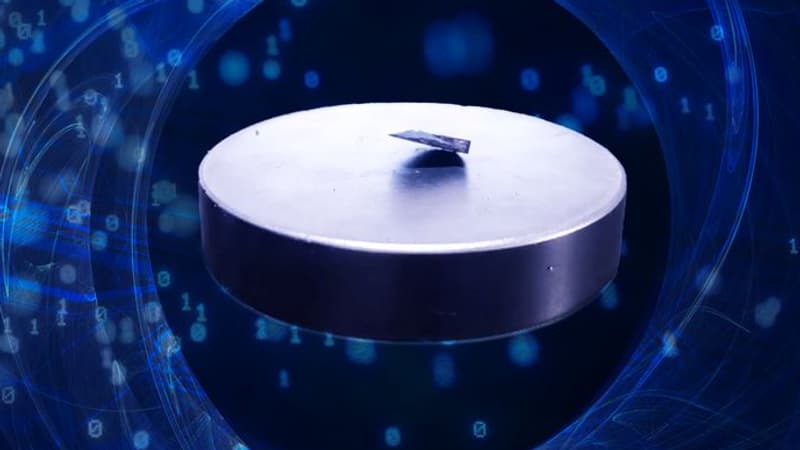It is supposed to “open a new era for humanity”, according to the scientists who discovered it. Finally, LK-99, an alloy composed of lead and apatite, arouses more contrasting reactions within the scientific community.
Revealed in a report published by South Korean researchers, this material could achieve superconductivity at room temperature. This characteristic allows it to conduct current without any loss, unlike copper, for example, which could disrupt many areas such as transport or energy. Therefore, its use could allow achieving economies of scope and limiting greenhouse gas emissions.
Inconclusive experiences
If the promise is attractive, the protocol leading to the South Korean scientists’ conclusion must be repeatable and peer-reviewed, and to do so, be officially published in a scientific journal.
However, in a series of tweets posted on Twitter on August 8, the Condensed Matter Physics Research Center at the University of Maryland (CMTC), in the United States, refers to publications from various universities and laboratories around the world. They tried to reproduce the experiment performed by the South Korean scientists on the LK-99. But these entities explain that they could not reproduce the principle of superconductivity at room temperature.
“Tonight, ICQM, a leading research center in China (which has several CMTC alumni on its faculty), published an important preliminary paper finding no superconductivity, but a small amount of ferromagnetism (not diamagnetism). ) in small flakes of LK99 samples”, details, for example, the CMTC.
Another attempt, this time by Indian researchers, also leads to the absence of superconductivity at room temperature of the famous LK-99.
“Poor quality material”
The American academic body concisely concludes that “LK-99 is not a superconductor, even at room temperature (or very low temperature). It is a poor quality material.” […]. There is no need to fight with the truth. The data has spoken.
This is not the first time that doubts have been raised about the reality of superconductivity at room temperature. already the review Sciencea reference in the scientific world, published an article to discuss their uncertainties about the discovery from the South Korean researchers.
However, on August 1, a team of Chinese researchers announced that they had succeeded in reproducing this trailer for the first time. Therefore, it will take some patience to see the emergence of a scientific consensus on the effectiveness or not of LK-99 and its superconductivity at room temperature. Meanwhile, the investigation continues.
Source: BFM TV


